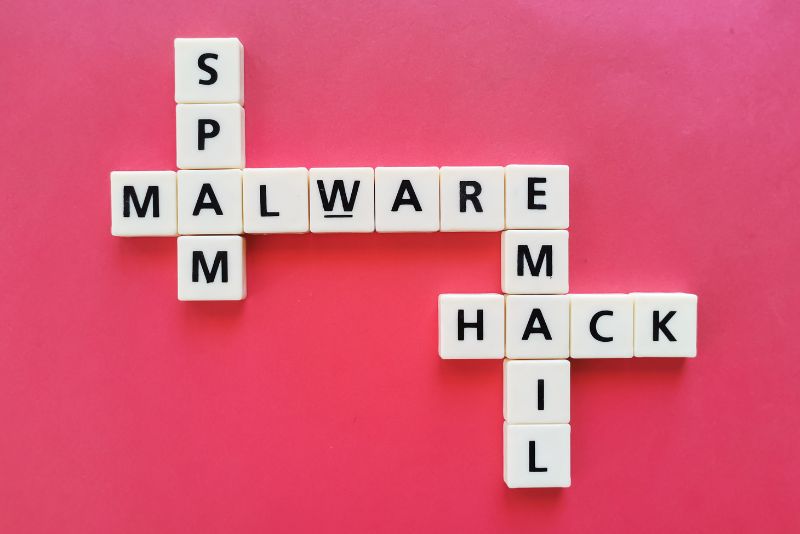The constantly changing and advancing IT industry has made it easier than ever for businesses to reach a wide customer base while streamlining in-house operations from payroll and invoicing to data sharing and employee collaboration.
Unfortunately, when your business is online, whether you run a website, store business data on the cloud, or simply use email for communication, your business data is at risk. Without proper network security protocols in place, you are leaving your business open to cyber attacks that can drastically impact your organisation’s productivity, reputation, and bottom line.
While many small and medium-sized businesses may not have the resources to bring on an in-house IT security team, partnering with a reliable managed security service provider, such as Tech Cover, is a cost-effective alternative to protecting your business from network security risks. For more information, give us a call on 1300 832 326 or read on to discover the most common network security risks your business may face.
What Is Network Security?
Network security is the implementation and monitoring of IT security protocols designed to protect your business against cyber threats. Cybercriminals are constantly developing new ways to exploit businesses and access their sensitive data. Without adequate network security with regular monitoring and patching, your business is at risk of data breaches and cyber attacks that can bring your operations to a standstill.
What Are The Most Common Network Security Risks?
While there are always new cyber threats that must be actively protected against, some of the most common network security risks that you should be aware of include the following:
Malware
Malware refers to any malicious software that is designed to gain unauthorised access and steal sensitive information from the compromised computer system. This term covers many different types of cyber threats, including viruses, worms, trojan horses, spyware, ransomware, and more.
Once the malware is deployed, attackers are able to access protected information such as passwords, email addresses, and bank accounts. This information can then be used to disrupt or damage your business through identity theft, blackmail, or data corruption.
Worms
Worms are designed to exploit network vulnerabilities in order to infect a computer system. The worm can then quickly replicate and spread to more computer systems by sending itself to all of the infected computer’s contacts.
While worms are one of the most common computer threats, they are not talked about as much as other network security risks as they often won’t cause as much harm as other types of malware. In fact, there are many worms that are only designed to spread without changing the computer system.
Trojan Horses
Like the original Trojan horse that was said to have been used by the Greeks to enter the city of Troy by tricking them into letting soldiers through the city gates willingly, trojan horse viruses trick the user into willingly downloading the malicious software by hiding it behind a legitimate program.
This can be as simple as clicking on an attachment on an email that appears to be from someone you know or clicking on a false advertisement, resulting in the trojan horse malware being downloaded onto your computer. Once downloaded, the trojan horse can log keystrokes, steal sensitive data from your computer, and can even be used to hijack your webcam.
Adware & Spyware
Adware is designed to track your browsing habits which are then used to display targeted advertisements and pop-ups. While adware can be a legitimate source of income for companies that provide free software, any adware that is downloaded without the consent of the user is considered malicious.
Malicious adware can cause annoying pop-ups and frequent advertisements that can sometimes slow down your computer and affect your internet connection.
Spyware is similar to adware in that it is used to gather information on user behaviour. However, spyware is installed without the knowledge or consent of the user and can also be used to gather sensitive information such as passwords and even credit card details, and it is often used to commit identity theft.
Viruses
Computer viruses are often downloaded through email attachments or downloadable files from websites. Similar to worms, computer viruses exploit the vulnerabilities in your network to infect your device. However, viruses can only infect a computer system if the file that the virus is attached to is opened.
Once your computer system is infected, the virus can disrupt your network traffic, send spam, steal and corrupt your business data, infect other computers on your contact list, and can even delete everything on your hard drive.
Rogue Security Software
Rogue security software is used to exploit businesses by tricking the user into thinking that their system is already infected with a virus. This is achieved by sending warning messages that appear to be legitimate, saying that your network has been compromised.
The rogue security software then offers to install or update security settings by having the user download their program or pay for their non-existent security solution, resulting in real malware being installed onto the computer system.
Phishing Attacks
Phishing scams are when cybercriminals pose as legitimate entities in order to gain unauthorised access to your network and steal sensitive information such as email addresses, passwords, and banking details.
Phishing scams are typically carried out via email but can also be spread through text messages and phone calls. They are used to trick the user into clicking on malicious links or downloading unsafe attachments to install malware, or more simply can be used to obtain private information by posing as a trusted source and asking for private information as verification.
SQL Injection attack
Many servers used to store website data use SQL. SQL injection attacks are one of the most dangerous privacy issues for businesses when it comes to data confidentiality, as they use malicious code to obtain, change, and even destroy private data.
DoS and DDoS Attacks
A denial of service (DoS) attack is designed to flood a website with malicious traffic in order to overload the server, preventing legitimate traffic from accessing the website content. A DoS attack is carried out by one machine. However, with technological advancements, it is difficult to overload a server with a single server or computer system, making DoS attacks far less common than they previously were.
Similarly to DoS attacks, distributed denial of service or DDoS attacks are also designed to overload a server with malicious traffic. However, a DDoS attack is far harder to overcome as it is launched from many different computers, ranging from just a couple to thousands of PCs. This is achieved through creating a ‘botnet’, which is essentially a group of computers that have been compromised through the use of malware that are then added to the attacker’s network.
Since a DDoS attack can come from many different IP addresses all at once, it is far more difficult to locate and defend against. A successful DDoS attack can cause the targeted website to crash or malfunction, preventing legitimate traffic from visiting the website.
Ransomware
Ransomware is a type of malware that encrypts files. The cyber attacker can then force the user to pay for the encryption key that is needed to regain access to the encrypted data.
How To Protect Your Organisation
With so many different types of network threats out there, network security should be a top priority for any business owner. There are many steps that can be taken to protect your business against potential cyber threats, including standardising software and keeping it updated, network security training for employees, and partnering with a reliable managed service provider like Tech Cover.
Standardise Software
Using standardised software across your computer systems is a simple step to take that can simplify network security and protect against potential threats. With standardised software used across the board, you will be able to prevent users from installing unapproved software that may pose a security risk.
Additionally, this will ensure that all computers will be using the same operating system, browser, plugins, and applications, making system updates easier.
Keep All Software Updated
Keeping all of your software updated is an essential part of keeping your network secure, as each new update will include any fixes for identified security vulnerabilities that could otherwise be exploited by cybercriminals.
To make keeping your software up to date as simple as possible, use automatic software updates where available, as manual software updates can be time-consuming and are often put off or forgotten.
Network Security Training
The majority of cyber attacks are caused by human error. When your employees are unaware of network security best practices, they are far more likely to put your network at risk by clicking on unsafe links or downloading malicious software by accident.
Providing regular network security training to your team will help your team stay alert and responsive to potential threats and reduce the risk of data breaches as a result of weak passwords and other unsafe practices. It is also important to ensure that your team knows who they should contact in the event of a potential security breach.
Utilise A Managed Service Provider Like Tech Cover
With cyber criminals developing new, more intuitive ways to exploit businesses and access sensitive data, your network security protocols should constantly be adapting and evolving to protect against new threats.
However, hiring a full-time IT team to protect your business against network security threats can be cost-prohibitive for small and even medium-sized businesses. Outsourcing your network security services to a managed security service provider such as Tech Cover is an affordable alternative that will ensure that your business data remains secure and protected at all times.
When you outsource your network security to Tech Cover, we will take care of everything, from software updates to regular analyses of your IT systems to protect against cyber threats for a fraction of the cost of hiring an in-house IT manager. Contact Tech Cover today on 1300 832 326 for cost-effective network security and managed IT solutions Brisbane and Australia wide.
Recent Posts
With company websites, online shopping, and social media, reliable IT support has become essential for every business, big and small. Technological advances have made it easier than ever to start and grow a business, allowing business owners to easily reach their...
Providing employees with the option to work from home or employing remote workers can increase productivity and morale and can also benefit your business’s bottom line. However, employing remote workers comes with new IT security challenges. This is because, in a...
The amount of employees in Australia that are regularly working from home has been steadily increasing for years. However, with recent stay-at-home orders as a result of Covid-19, the number of people working from home increased exponentially. This left many employers...
vRunning a business can be difficult and sometimes so is managing employees. HR Maximised gets that. You employed staff so you could grow your business. The plan was that you would then have more time to focus on the business rather than in it. This week we touched...
There’s no denying that outsourcing the management of your IT systems is a cost-effective alternative to hiring an in-house IT manager, let alone the added benefits that come with the knowledge and expertise of a professional IT management team. However, with so many...
1) Embrace Receipt Reader Software What is Receipt Reader Software? There are various receipt reader software products that attach themselves to your accounting software. Your accounting software being products like Xero, QuickBooks, and MYOB – the three most...
IT is an integral part of almost any business, whether it be a small start-up or a large enterprise, from websites that are used to grow your brand and reach your customers in the comfort of their own homes to the storage of business data and collaboration of teams...
According to the Australian Cyber Security Centre, cybercrime costs Aussie businesses around $42 billion annually. Should your company fall victim to a data breach, the average cost to resolve the issue is $2.82 million. Then you’ve got the threat of physical...
The IT needs of any business will grow and change as the business evolves, which is one reason why many business owners are making the switch to cloud computing. Whether you’re looking for a flexible and easily scalable way to store and share your business data, or...
Online data storage provides an easy way to store and access business data ranging from customer details to sensitive business information. Unfortunately, the added convenience of online data storage comes with the risk of your business information being accessed by...











